Episode 253 - Excellence, Integrity, Faith and Culture-shaping Media with Bryan Engram
We talk a lot about how businesses shape cultures. Media does, too. Today’s conversation overlaps with both as we talk to Brazen Animation’s co-founder and CEO, Bryan Engram.
Bryan chats with us about the power of narratives and the importance of excellence. He shares a bit about how he went from working for a large animation company to taking a leap of faith and starting out on his own. And he even tells us how he almost missed out on all of this for a chance to manage a Smoothie King.
All opinions expressed on this podcast, including the team and guests, are solely their opinions. Host and guests may maintain positions in the companies and securities discussed. This podcast is for informational purposes only and should not be relied upon as specific advice for any individual or organization.
Episode Transcript
Transcription is done by an AI software. While technology is an incredible tool to automate this process, there will be misspellings and typos that might accompany it. Please keep that in mind as you work through it.
Rusty Rueff: So, William, back in 2003, when I was a D.A., the guy that was in charge of training and development for all of our artists would bring in these legendary animators to E.A. And it was about 2003. He brought in a guy named Ray Harryhausen. And so Ray Harryhausen, he was the creator and this special effects guy for many, many movies, but most notably, I guess, would be Jason and the Argonauts. 1963, 1963. So Ray died in 2013. So I'm guessing that he was in his early eighties, around 83 years old when he came. And he actually brought these models and laid it all out. And you could see how he used stop action to move every little brick when Jason would break down the wall. And, you know, the whole room was fascinated. Absolutely fascinating. And at the end of his talk, we opened it up for questions. And this young kid, I'm assuming he was an intern, you know, he couldn't have been 20 years old, raises his hand in all respect. And he says to Mr. Harryhausen, well, how can we just didn't use Maya to do all of this, which was the animation, CGI, you know, software at the time, which proved to me the old adage.
William Norvell: There's never a bad question.
Rusty Rueff: No there are bad questions. There are dumb questions.
William Norvell: [.....].
Bryan Engram: Technology is just the tool.
Rusty Rueff: It's just the tools. So we're now welcoming in someone who you've heard his voice already who knows way more about this than anybody. Bryan Engram is our guest today. Congratulations, Bryan.
William Norvell: Spoiler Alert. Bryan was that child.
Bryan Engram: You're right, exactly.
Bryan Engram: I had a lot more hair. Yeah, exactly.
Rusty Rueff: But congratulations, Bryan, because I know that you just celebrated a milestone anniversary with your company. Brazen animation. Ten years. Ten years you've been at it. So congratulations. We're so excited to have you here on the podcast. I know one guy who wishes he was really here, and that's our co-host, Henry Kaestner, because he loves movies and he would give us all kinds of facts and figures. He would know, by the way, that the most anticipated movies of 2023, they're all top ten of them years animation in some form, Yes. So we're missing Henry. He's in Rwanda now, but he'll listen in and he'll probably reach out to you at some point and and pick your brain for even more things. But thank you for being on the program. And I'm just going to jump in. You know, I know you did some things with us from right now media back in the day, and we've been doing this faith Driven and entrepreneur podcast for over 250 episodes now. So that would be five years plus. But we've never had you on the show, so shame on us. We should have had you here, because I think you're going to bring a unique perspective to media, culture, faith, And so we want to get into that. But first of all, we want to give you a chance to introduce yourself, introduce your work. Tell us who is Bryan?
Bryan Engram: Absolutely. Well, thanks, guys. Obviously, love. Love this show. Appreciate you having me on. So I'm Bryan Engram, co-founder, CEO and chief Creative at Brazen Animation. As you said, we started ten years ago and we do stuff like Space Jam Two and Addams Family two and Fortnite and a lot of work for Blizzard Overwatch. So we do a lot of film, TV, video game stuff and that's been fantastic. Really a blessing. Now this next phase of the company we're moving into actually our own content, which is really exciting. We recently just signed a distribution deal with Angel Studios for our own show, and we actually got the highest rating of their jury system where the crowd gets to vote on the show. They want to get see made the most.
Rusty Rueff: Did you have a pilot to do that?
Bryan Engram: We did, but we had a teaser and we put it up there. They call it the Torch. So we got the Torch award recently. And so we're really excited. So we're actually doing crowdfunding in August for that show. That's the way the Angel model works. Or I just like the Chosen, you do crowdfunding. And so we have now started to go from the service work to now our own content. And man, we are all extremely excited about that opportunity.
Rusty Rueff: What crowdfunding platform should we be looking for in August?
Bryan Engram: So it'll be on Angel Studio's portal is what they call it, and that's how you do it. So the people go on and are able to give money and then we can obviously raise additional money on top of that. So anyway it's fantastic how it's going to work.
Rusty Rueff: Yeah, that's awesome. Well, you know, Bryan, as I said, as introducing your do you have a what I would say a very unique overlap, because you're not only an artist, but you're also a faith driven entrepreneur and. You know, we talk all the time. It's pretty much in our culture about how much our society and our culture is shaped and driven by media and entertainment. And so I'm interested in your perspective of, you know, how do you see the media and entertainment shaping our cultural narratives today? And from your perspective, having been in the industry for a long time now, is that a stronger shaping of the narrative? Is it more compelling? Is it the same as it always was? It's just we see it more. What's your take?
Bryan Engram: Yeah. So, you know, I have to go back really far. You know, you start to think about how stories were told from an oral tradition, generation to generation. Right? And you think about tribes and shamans and how they would get up in front of a tribe and they would tell stories, and it passed down stories. So if you think about it in those terms, the oral tradition of storytelling and I actually would include music in this as well, obviously. But we have always had our culture shaped by storytelling narratives. And so I don't think this is a new thing by any stretch. I think it's just all of human history has been this way. It's a very, very powerful vehicle that either shapes the culture or preserves the culture, depending on who's the storyteller, right. So to your question, I think what's happening more recently is, you know, if you think about Christianity in the West and you go back to early Hollywood, you know, Disney is 100 years old this year. And you think about there are quotes from Walt Disney about how his faith shaped those early animated films, which shaped how people saw the United States. So America saw the West and we can go back, you know, pre the United States, how Christianity and that storytelling using the Bible as the foundation has shaped our culture from Europe, United States, etc.. And so I think what's unfortunate is because a lot of people now that are in control of maybe the narratives of Hollywood in more recent times, rather than hold on to some of those values that were biblical, have now decided that those values are no longer important and they actually want to reshape the culture into a new image, a new foundation, new value system, you know, all these things. And I think, you know, obviously as Christians, when we go to films now, there's still glimmers of redemption in these stories, but some of it's becoming perverted in the way that their culture said there is now no good and evil. There's like these like relative truth. Right. Right. And that's pretty recent, actually. I mean, I don't know how old you are, but, you know, I'm a kid of the eighties.
Rusty Rueff: Too old.
Bryan Engram: Okay. But I mean, you know, if you look at the 60, 70, 80, 90, there was still a lot of redemption. Sure. Just jam packed into stories come out of Hollywood. And it's really only been in the last few years that that has sort of flipped. Yeah. So it is interesting.
Rusty Rueff: Yeah. I also think it's fascinating if you overlay videogames into entertainment as well. You know, having spent my time in the industry that, you know, video games allowed you to become a part of the story. And you know, before that the story was told to you and you could see yourself maybe be trying to be reflected in linear entertainment, but then all of a sudden you became a part of the story and then you overlay on top of that reality television, which then began to really shape, you know, what should my identity look like and who should I be? And then you put social media on top of that, you know, and all of a sudden all these narratives become, well, what's the bigger, what's the more brash, what's the more abusive? What's the you know, you put that adjective on it. And I think it makes it really hard to be in the entertainment industry, right. And draw a line. And so you must face that as well. You know. So talk to us about how you've looked at that line and the influence that you have as an artistic studio leader.
Bryan Engram: Right? Absolutely. Yeah. So, you know, you would be really surprised about how much work we have to turn away because of just to your point about there's certain narratives, certain values, certain things that are being put in a video games or being put into stories where we do have to draw that line and we have to say, Hey, guys, from a brand standpoint, we're not necessarily aligned with those values or we're actually able to help a lot of these companies speak into it from a standpoint of, you know, if they don't agree with us from a values perspective, we can say things like, Hey, you know, you guys have never done this with your fan base before. You've never had this sort of narrative before. You see what's happening with two other companies that are now doing some of these things. Do you really want to go down this road? And even appealing to them from a marketing standpoint tends to had them take a step back and go, You know what? Actually, I don't know that we want to do that with our fan base. And so, as you would imagine, within Brazen, we have constant conversations about what we're working on, why we're working on it, what we're saying by the things we're working on, and then our own stories. What are we trying to say? Right. And so there is just constant conversation within brazen about culture, about what's happening in culture outside and what's happening to us internally to either respond to it or to help shape it both now in the future.
Rusty Rueff: So this would be a great place for you to give our listeners some advice, because there are plenty of entrepreneurs who are looking at the services they provide or the products that they put out there that their employees, you know, might have a differing opinion, that that should be a customer or that shouldn't be a vendor or, you know, this product shouldn't sit on that shelf. You know, all of those things. Be great to hear your advice to those entrepreneurs that have to deal with that kind of struggle.
Bryan Engram: I love it. That's a fantastic question. So one of the things we talk a lot about at brazen is, you know, as you would imagine, we have certain, let's say, clients that we work for that are on one political side of the spectrum and we have other clients or maybe on another side and their values, their faith kind of fluctuate all over the place in terms of what those companies represent or what they're trying to convey. And what we tell our employees internally is we say, Guys, we have our own values. And as long as we are not violating our values, we are willing to work with this group and we're willing to work with this group. So as long as they're not asking us to do anything that violates our morals or our values, then we're willing to work on that. Right. And so that's how we talk about we actually want to serve everyone, right. As a Christian, as a Christian business owner, we want to serve everyone without violating who we are. And so that's really been interesting because internally, it's not like we have all Christians that work at Brazen, right? We have atheists and we have Orthodox Jews and we have devout Muslims. So it's interesting.
William Norvell: Bryan I think that is legit because something a lot of faith driven entrepreneurs face. And so I'm going to ask you to try to take a layer deeper. My guess is if you're listening in the audience, you probably think it's a black and white moment, right? There's a certain things that are off limits, it's clear. But I think it's those decisions that matter, that shape the culture of a company, in my opinion, are those gray areas where maybe half the staff is in favor and thinks it does align with the values, then maybe half the staff doesn't. And then you, as the CEO, have to navigate that and keep the company together and yet defend what was the essence of these values when you set them out. And I'm curious if you had a moment to walk through maybe a gray area decision where you don't have to name names, you can it's up to you, of course, where, you know, a company was there and it was a great opportunity, but something didn't feel right or something didn't quite match up in your eyes. And therefore you were willing to say, This is my call, right? This is what the values actually mean. And I see why you see it this way. But here's what actually, I don't know if that makes sense. I'd love to hear one of those, because I think that's where there are a lot of this meets the road, you know?
Bryan Engram: Yeah. No, absolutely. At this. Great. Okay, so let me see if I can do this without naming the company, because when I start describing what the game is, you may give it away. So we recently were approached by a company who one of the main driving forces of their game is there's a character that's doing battle against demons and they're in hell. And I mean, basically they're fighting demons right now. They wanted to give us a lot of work and a lot of money is what this project would be worth. And so you had part of the company coming to me and they were saying, hey, you know, this is a really good opportunity. It's a lot of money. We should take this job. I don't think it's directly promoting hell or demons. In fact, the characters doing battle. The problem is in the game, cinematics themselves the way they're portrayed. It's like a glorification of gore, but blowing the demons heads off and things like that. And even the loading screens use Pentagram. Right. That's like part of, you know, the branding of what this promotes. And so it was this really weird area was like, well, isn't this game actually battling demons? So we should be aligned with that. But it's also sort of like glorifying hell and demons and gore and blood and guts and all right. And so there was this really weird place where, like, I literally had the studio split halfway and say, No way should we work on this. The other half saying, Hey, we should totally take this. Look how big the project. It is, and I don't think it really violates our values. And I just had to say, like, look, guys, at the end of day, I want to be able to show my kids the stuff we work on. And I really don't want to align our brand with a brand that one of their main symbols is the pentagram, right? So I had to just make a call and I had to turn away the work. And I mean, I had a company meeting this everybody know and you know, not everyone's going to agree. But at least having someone make a decision to your point, at least having the CEO go like, this is what we stand for. This is gray. But there are some things here that really stand out to me that makes it so that we should not align with this particular brand or this particular project.
William Norvell: I love that. I love that. And it doesn't have to be the answer to this next question. I'm curious. Was there any fallout from the side of the company that didn't agree?
Bryan Engram: No, But it's interesting. We have so many discussions with our clients about like we lead off with, hey, just let you guys know the type of stuff we work on. We're a family friendly studio, so we almost lead the witness in terms of, Hey, we'll consider your project, but don't be surprised if we turn it down. And just by approaching it that way, then they're mentally prepared for it. So they're like, okay, yeah, we get it. We understand. So we left on good terms because that is such a huge part of the stuff they work on. We probably won't work with them. You know, we have another game studio we've worked with before that. We had actually worked with them and then we had to turn down some other work, but they've got some other properties that they've come back to us and they said, Well, we know you won't work on these projects, but we have this other project that we know won't violate your values. Would you work on that one? So anyway, it's really interesting. If you're just open and have the conversation about how you can have any negative or vitriolic tension, just by being honest.
Rusty Rueff: And then there's the hidden positive that comes from being able to have those conversations, too, because the leader of the company that you went and turned down, he or she will tell others, hey, you know, those guys are great, but don't go there for this because they're just going to turn you down, which saves you from having to go through the conversation again. Just because you stood up and said, This is what we stand for.
Bryan Engram: Yeah, it's good to you know, there's always natural fear about being canceled if you're Christian or you're open with it, or especially if you're a faith driven entrepreneur, right? And so there's always a little fear, especially in this industry, about being canceled. People still bring us tons. I mean, we're doing a ton of work for Netflix right now. We're doing work for riot games. You know, they do legal legends. So we're doing a ton of work for those guys. So we haven't been canceled yet. And we're very open on our social channels, like we post Bible verses and Easter and Christmas and, you know, so I don't know.
William Norvell: It's awesome. That's great. So as a child of Nintendo one, which was where I went to, you know, let's be honest, dominate. My friends at various games because that's what I'm good at. I feel like the debate over games and TV and impacts on children and things like that probably has never been higher. I mean, I've even heard parents talk about, you know, gosh, I mean, I don't want to play games, but if they're playing games in my basement, at least I know where they are. I mean, there's just all kinds I've heard all kinds of theological, you know, points of view on this. Right. I'm just curious to give you an open forum like theology of gaming and media, and not just for children, for us. I mean, adults are just as sucked in and the word our kids learn it right? Probably from us. Right. I've got a five, three and a one year old, so my gaming days are a little behind me for a little bit. But me curious, how do you see that world from a Christian worldview? And, you know, what's the redemptive imagination that maybe some people aren't seeing when they think about this world?
Bryan Engram: Yeah, I mean, that's a great question. I think that there is such an opportunity, especially as more companies that are like brazen, get into this space to really have an influence. And it's strange to say this because you want to bring new things to the table, but as a Christian, there are these, you know, if you are a believer and you believe that God is the origin of truth and the origin of creativity and the origin of then as a Christian storyteller, you believe that every moment of what you're trying to do, you can speak into people's hearts, their minds, their souls from a redemptive perspective. And so I think whether we want to admit it or not, there is redemptive things happening within culture. It's just trying to help your kids see it. So if you are an active parent and maybe this is where you're going with your question, if you're an active parent with your kids and you're watching a Disney movie and let's say it does have something in it you don't agree with, that is an absolute opportunity to both point out the redemptive aspect of that story, but also things that maybe don't align with values, right, that you're trying to instill in your kids. So for me, and in that regard, I look at it as all an opportunity to be redemptive. If you are a parent that's not just throwing your kid in front of the TV, but you actually engage with them with the media itself, Right? And so does that answer your question?
William Norvell: It does
Rusty Rueff: Yeah. I think it's really good. I mean, in my years at here, that same question asked me all the time, and I said the exact same thing that you did, which is, you know, you let the video game be the babysitter, then you've abdicated your responsibility as a parent. However, if you engage with them, you play. And there's many a father son relationship that are amazing relationships because dad can't go back out in the backyard and dunk the basketball anymore with the son.
Bryan Engram: Right.
Rusty Rueff: But they can do that together on a video game or they can solve you know, they can win on the video game together. And, you know, that's some pretty powerful moments. If you stop and think about previous generations where they can remember going to the movies with their parents. I was seven years old. Go and see Peyton with my dad the day that I got my first pair of eyeglasses. We'll never forget that he took me to see that movie. The same thing is happening in this generation. If we engage right, they will Remember the first time they sat down and played the new Zelda, you know? But I think that's part of the answer, which you're closer to today than I am. But I think that's been a part of the answer for all media for a long time. You know.
Bryan Engram: Absolutely. And it is a shame to your point that. A lot of parents do use it as just a babysitting tool versus and I'll just give you a quick you know, my mom and I can talk about this more in a second, but you my mom, she's a theater teacher director. So I grew up watching movies in a different way than most people. She actually we would watch movies together and she would critique the acting and tell me why Robert De Niro like, Hey, Bryan, did you see Robert De Niro? You see how he shifted his body and his expression and all that sort of stuff. And so my mom, as a teacher of theater and of classical literature, she taught me how to just watch movies and absorb stories in a certain way. Now, granted, not everyone has that, but to your point, whether it be movies or video games, I mean, if we're able to do that stuff together and we're actually able to use these stories to teach life lessons, it can be extremely powerful.
Rusty Rueff: Absolutely. And, you know, one of the reasons why that we see this, you know, kids being so pulled into these games and movies in this animation is because it's so real. It's done at such high level of excellence that, you know, it's suspend disbelief and, you know, that's what you're doing. But you're also committed because you talk about a high level of excellence in what you do, which I want you to riff on that because so many times when you put the word Christian in front of, you know, work that's being done, whether it's in entertainment or anything, that's that the first thing it conjures up is, well, it's not going to be up to par. It won't be the same at the same standard. And that's exactly the opposite of what we're called to do from Christ. We're called to do what we do with a level of excellence. And I know you're committed to that. And so talk about where that concept comes from inside of you and how do you manifest that out inside of the company?
Bryan Engram: Yeah, that's fantastic. Okay, so there were a couple of questions in there. I just give you an anecdote from I use my mom. So my mom grew, she wanted to be an actress. She was a theater major. She was a music minor. She has her master's in classical literature. She desperately wanted to go to Hollywood and be an actress. That was her dream. My grandparents, who I love. So I don't want to disparage them at all, but they absolutely, as Christians, persuaded her not to do that because they thought she would be corrupted. She would be her morals would be corrupted. And my mom basically said, well, I won't do that, became a schoolteacher. Now, I use that as an example just for a second to explain how we got to this point from a church Christian perspective. Take that example. And that is happening across millions of kids growing up with talent, acting, art, animation, music, the arts. And they're being told if you go into that realm, you will be corrupted. You will fall under the guise of some satanic, you know, influence. Now that does happen to some people, so I don't want to discount that. But if you didn't track with that over generations, to your point, what happens? You've now removed all these amazing people that maybe have these values from Hollywood, from these industries, and suddenly what you're left with is you're left with two things. You're left with less people telling these sorts of redemptive stories. Right. That they may have told otherwise. The second thing is that I hate to say it this way, but maybe the most talented people are the ones now creating the more faith based content. Right? And so you end up with that along with maybe investors who are investing in those projects. And it's usually like somebody's cousin or somebody's nephew has an idea for a film that's never been in the industry or done it. So that person's not necessarily such a qualified to make it right. And so I'm just trying to track with you to talk to you about from my perspective, there's been a tragedy that's happened within Christians producing excellent content. It's almost been neutered out of the church through the thought that if we go into that, you know, Hollywood is Satan's world, right? Entertainment is Satan's world. It's not for us. Therefore, we're not going to invest in it. We're not going encourage our kids to do it. We're not going to do that. Makes sense.
Rusty Rueff: Totally makes sense. Right sense.
Bryan Engram: So for me, what a huge part. I don't know how. I realize that. But I realized that pretty early. Like, man, if you had Christians creating things at a really high quality level and you know, the Greek word. So if you look at virtue, the Greek word is areti, which means excellence. That is to do the most excellent thing, right, to be virtuous, to have excellence in what you do. Right. And so that is actually the first thing to supplement your faith with is virtue, which excellence. And so I think about things like excellence honors God, inspires people. Of course, there's that quote. But then Steve Martin says, be so good, they can't ignore you. Right? Right. And so I believe from an excellent standpoint, not only are we made to be excellent, we're not made to be mediocre, but also from a standpoint of telling stories, reaching the world, reaching culture. You can reach people through excellence. That's what they respond to. Whether they realize it or not. They're actually respond to, I think, their sole response to it. Right. The creator created us to be able to create other things. Right. And so I think people respond to that from a spiritual standpoint, whether they consciously or subconsciously realize that. And so for us and for me, we push quality and excellence really hard in our storytelling, in our art work, because we believe that's actually how we'll penetrate the market and be able to speak to people at a deeper level because they won't be looking at it like, Oh, it's just another Christian bad, you know, piece of junk, right? They'll look at it for what it is. Oh, this is amazing. Even if they know Christian made it like this is still amazing. And like Steve Martin said, they have to take note. It's so good. They have to take notice. Right?
Rusty Rueff: Right. Yeah. Good for you. I mean, I still want to see a world where, you know, we don't just go were shocked because somebody of faith made something great, you know? I mean, like, that's where we kind of sit right now. We go, wow, wow. There's finally one, you know, this amazing. And let's just pray that we have momentum here with guys like you. So one more question I forgot and then I'm going to turn it over to William. And I know he's going to take us through our lightning round as well. But so you've been on this entrepreneurial journey for quite a while. You stepped away. I love the fact that you did mentoring and coaching for a number of years for animators, and I'm sure you touched lots of people, by the way, you know, during that time that you had influence on. Take us through the growth that you've had in your faith from the entrepreneurial journey that you had, the courage, took the risk, turned left and said, I'm going and doing it.
Bryan Engram: Absolutely, well. So I, I can't speak to that unless I speak to how I got in the industry to begin with. Right? So I just graduated college. I was I got to college, I had an art degree, a film degree. I was teaching myself animation. I had a job at Smoothie King and it was a fun job. I will admit. You get to talk to people all day and it was a lot of fun.
Rusty Rueff: But was that something you aspired to, to have that job at Smoothie King?
Bryan Engram: No, no, I guess I did, actually. I was in prayer constantly about it because I was approached by my manager. I've been there three months and I approached the manager and he was opening another smoothie king. And so he said, you know, Bryan, I love your work ethic. How about you run this one and I'll open a new one and I'll start you it. Remember, I'm fresh out of school, right? So he said, I'll start you at $32,000 a year to manage the smoothie king So to your question, I'm having all these crazy. I'm like, God, am I? Am I the smoothie king guy? Is that my path? Is that what I'm doing here? I was hoping to be an animator, but, you know, so I actually my boss was a Christian and I went to meet a guy named Todd is amazing guy. And I said, Todd, can you just give me tonight? I really would love to pray about this and I'll get back to you tomorrow. So this is no exaggeration. I went home that night and I got in my face like David. And I prayed to God, and the prayer was that God let me be an animator. The prayer was God. Just tell me what you want me to do. If this is what you want me to do, then I'll do it. But I just need some direction somehow. So I went to sleep that night. got up, the next day checked my email. And when you know there was an email from the company, I used to work for real effects, They said, Bryan, you can come in as an unpaid intern for three months and we're giving you a shot. And so I went to my boss and I told him, I said, Hey, look, I've got this shot. And I didn't want to tell you I was an unpaid intern. And so he said, Oh, I hope I'm taking care of you. I said, Yes, sir, they are. And so I went in and the thing was that I had a lot of faith to do that because we only had enough money to last a month. I couldn't last a full three months. And so I slept there. I worked and I was in prayer. And one month to the day that I started, my boss came by and he said, Bryan, come here, I wanna talk to you. He said, We just got a job with Hasbro doing a new G.I. Joe direct to DVD movie. I love your work ethic. You know the software, Maya. You know Maya and you know, cameras, because my degree was in film and he said, I'm going to start you at $37,000 a year as a junior Layout artist, which is a cinematographer, right? And so I went home and I walked in the door. My wife immediately knew. She's like, they hired deals like, Yeah. And so we hugged and rolled around on the floor. So now to get to your other question, that experience, along with looking back to the rest of my life. Seeing God work like that. And seen him do that over and over. Then when it came time for me to leave that job, I'd been there eight and a half years and I'd worked my way up in the company. I reported to the CEO and basically felt like God had been preparing me to have my own company. He'd expose me to the entire company. We went from 20 people to 600 people over that period, and when I went in, I prepared my wife. I said, I think I'm going to come home one day and probably have quit. Not mentally prepared for that. And that day that I put my notice in it, real Effects was one of those moments I walked in that day and I sat down and it was I can't say that God audibly spoke to me, but it was definitely it's time to go. And I went and told my boss and said, I've got to go. I'm going to start my own thing. And so your question is, how do you deal with the faith? I would tell people that if you look back at your life and you see how God is taking care of you through every phase, every stage of your life, you know, when God talks about why are you anxious? Look at the lilies of the field. Have I not taken care of them? Right? When God talks those verses, they're not just poetic. They're legitimate commands for us to have faith. And so that's how I was able to step out and start my own studio. And we've had, as you would imagine, having your own company. You have different moments where, you know, early on we couldn't make payroll. And so I'm taking money out of my personal life savings to make sure I don't have to lay anybody off. Right. So that takes a tremendous amount of faith and trust in God that he'll provide. And so that's what I mean is just at this point, if I look at my life, I don't see how I can not have faith and trust God because he's taking care of me and my family and our company over and over and over.
William Norvell: Amen always remember the faithfulness of God. Never a bad thing to reflect on. Okay. We're going to switch gears a little bit at the end here. We're going to Lightning Round. It's exhilarating. Get ready to.
Bryan Engram: Fantastic, love it.
William Norvell: And the goal is 20 to 30 second answers. An internal clock, not an external clock. But we're going to get it Go super quick. What's something? A song, A movie, A video that you always look for, for inspiration?
Bryan Engram: Absolutely. Lion King. So Lion King, there's a section where he goes and Rafiki shows him. He says, Look down, you've forgotten who you are. And then his father comes to him in the clouds and says, You've forgotten who you are. Remember who you are. And so I so identify with that character in that moment. And I feel like that movie speaks to me on many layers, especially spiritually. Don't forget to you. I don't forget who I made you to be. Right. So Lion King.
Rusty Rueff: Animated or live action.
Bryan Engram: Oh. Oh, definitely animated. Not now.
Rusty Rueff: Good. Yeah, I just. I just wanted to make sure I didn't cross that line.
William Norvell: So you're allowed to stay? You're allowed to stay that.
Rusty Rueff: Best game of 2022. And what do we have to play for 2023?
Bryan Engram: Oh best game. Okay, so unfortunately, you probably ask the wrong person in this regard. And here's why. Because I love God of war. I love the original Spider-Man. I know the new Spider-Man is going to come out pretty soon. So I love those games. But I'm a huge madden fan. Huge madden, Awesome. So much so that, you know, we actually do all the graphics from all the Madden games we've done the last four years of graphics from.
Rusty Rueff: I'd love to hear that. Lots of years being around that game.
William Norvell: Yes, I got one more than the close. What's one project do you want to see exist in the world that doesn't? Oh.
Bryan Engram: That's a great one. I would love a story and maybe there's something that will do animate at some point, and it doesn't have to be an exact telling of the Book of Job. But I've always been fascinated with that story of job and how God used his suffering and the faithfulness that he had in his suffering, and then to bless him. And so I would love a story not necessarily calling it Job, but some sort of version of that animated. I just I've always been really intrigued with Job and his story and just how all that went. I mean, do you think about the friends coming to him and tell him this is your fault, you did this to yourself and just the faithfulness that Job had. I've always loved that. So again, it can be allegorical, it can be more metaphore. Does that to be an exact retelling of Job? But I've always wanted to see something like that, especially animated.
William Norvell: That's good. That's good. Okay, so our final question, where we always loved the end is take it back to God's word. And we love to invite our guests to share something that is coming alive to them. God's word can be something you have meditated on your whole life and why you started your company could be something you read this morning on the way in. We love to just invite God's Word into this moment and say, you know, where's it coming alive for you?
Bryan Engram: Yeah, absolutely. That's great. Well, so, you know, Luke 8:25 when that again and this applies to the whole conversation because it's something I think about a lot, which is, you know, Jesus says, you know, the disciples during the boat, the storm is there and he's asleep. He's at peace. And when he wakes up, he looks at them and he says, Calm the storm. But he says, Where's your faith? Where is it? And what's interesting about that, if you look at Revelation 21, you know how it lists all these sins. And one of the ones is to the cowardly. If you look at the Greek word of coward, it's the same word that Jesus uses about where is your faith? And so that may seem harsh coming from Jesus also Jesus is calling us cowards. Right? But I don't view it that way. I do it more as like an encouragement of just don't be scared. You know, the verse said, you know, we weren't given a spirit of fear, right? But of love and power and self-control. So I just I really thought about that moment of Jesus being at peace and how he expects us to be at peace in the midst of the storm. Don't be scared. Don't be a coward. Have faith. Trust in him. And we can have that sort of peace, too. Right. And so, again, the reason why that's resonating for me so much is like I told you guys earlier, that people are always constantly scared. Now, you know, are we going to be canceled? Is something going to happen to the company? And my question is, is just where's our faith? We've just got to have faith that Jesus is going to take care of this guy, is going to take care of us no matter what. Right.
Rusty Rueff: That's fantastic. Yeah. You know, I've so always wanted I just wish one of the disciples would have, like, been up on the ballot about hanging on like Titanic. And the winds go like this, and they're going, Guys, this is so much fun, right? Right. This boats never going to go there. Get up here. Get up here. You know, I would like to be that guy. Hey, Bryan, thank you so much for hanging with William and I today. It has been a lot of fun. And thank you for all that you're doing. You know, we got a lot of listeners and I'm sure there's one of them out there is going, Yeah, but if Bryan would have stayed with Smoothie King, imagine how amazing our smoothies would have been. But I'm sure everyone else is like going, you know, we're glad that someone like you is in the middle of this intersection of media and entertainment and living out your values and living the values of Christ. So thank you. Thank you. We ask a blessing over you and your business, and we'll be watching on the Angel Studio platform, see how we can help come August.
Bryan Engram: I appreciate that, guys. Thank you very much. I love you guys and I love what you're doing. And I'm just I feel very honored to be on the show today. Thanks for having me. I really appreciate it. Thank you very much.






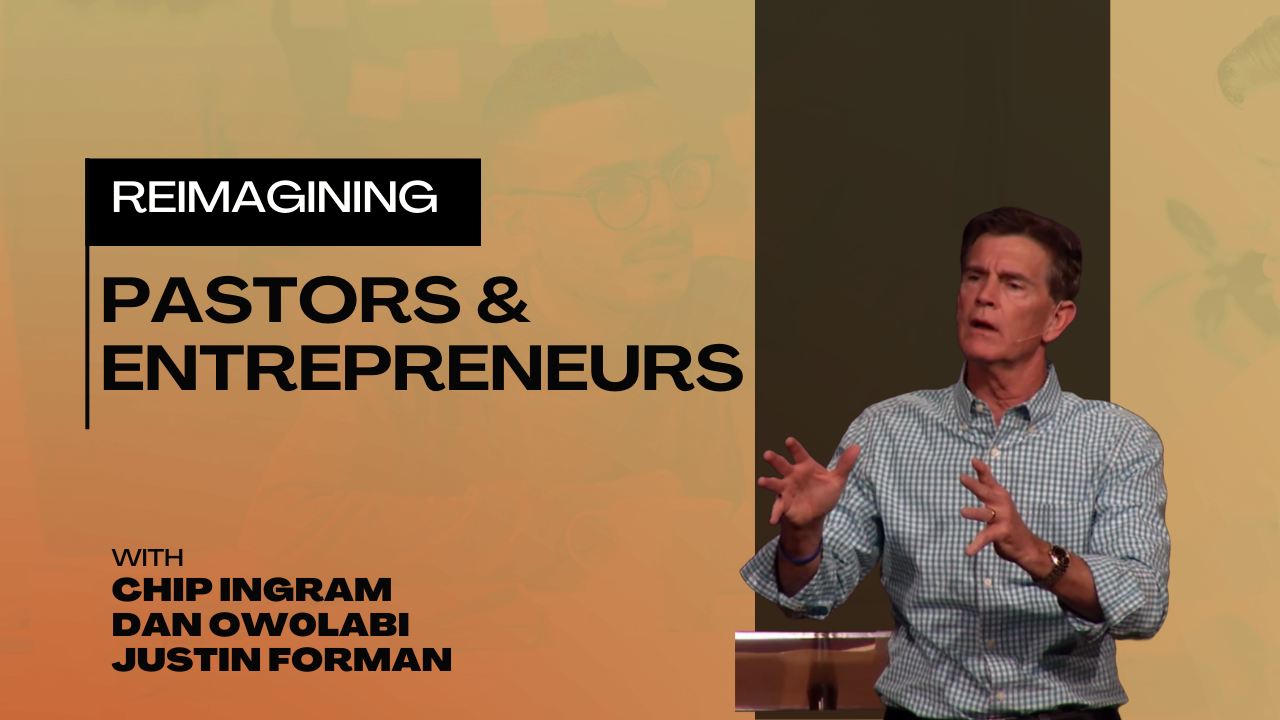



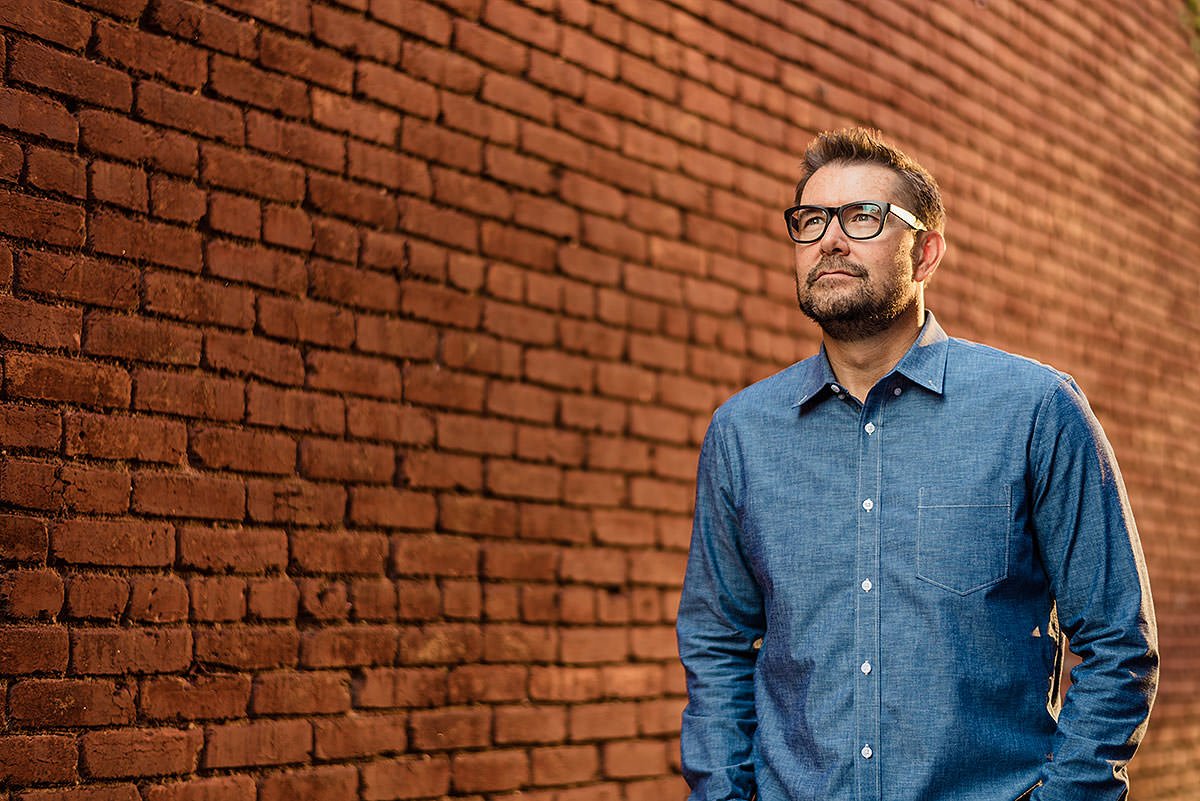
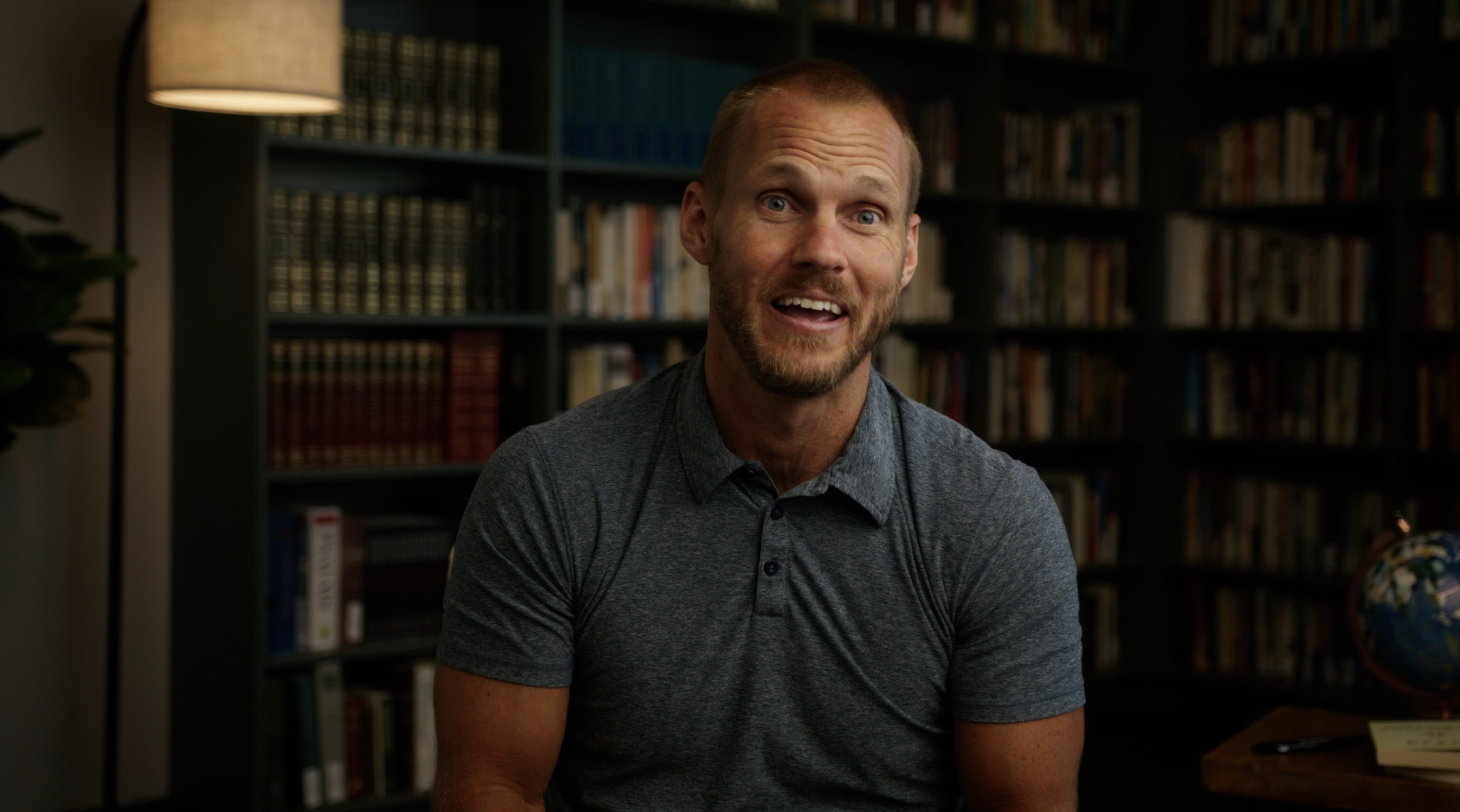
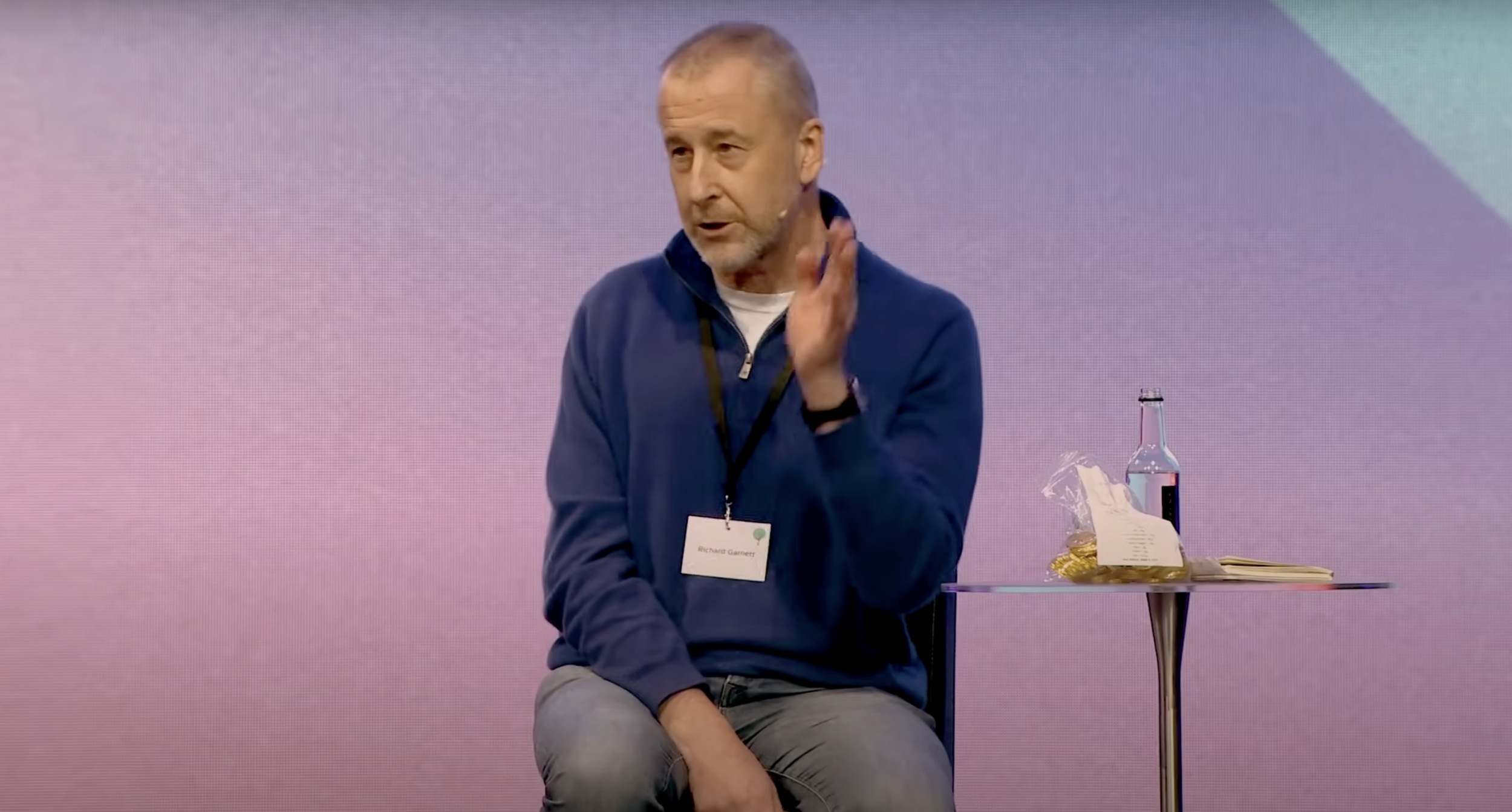

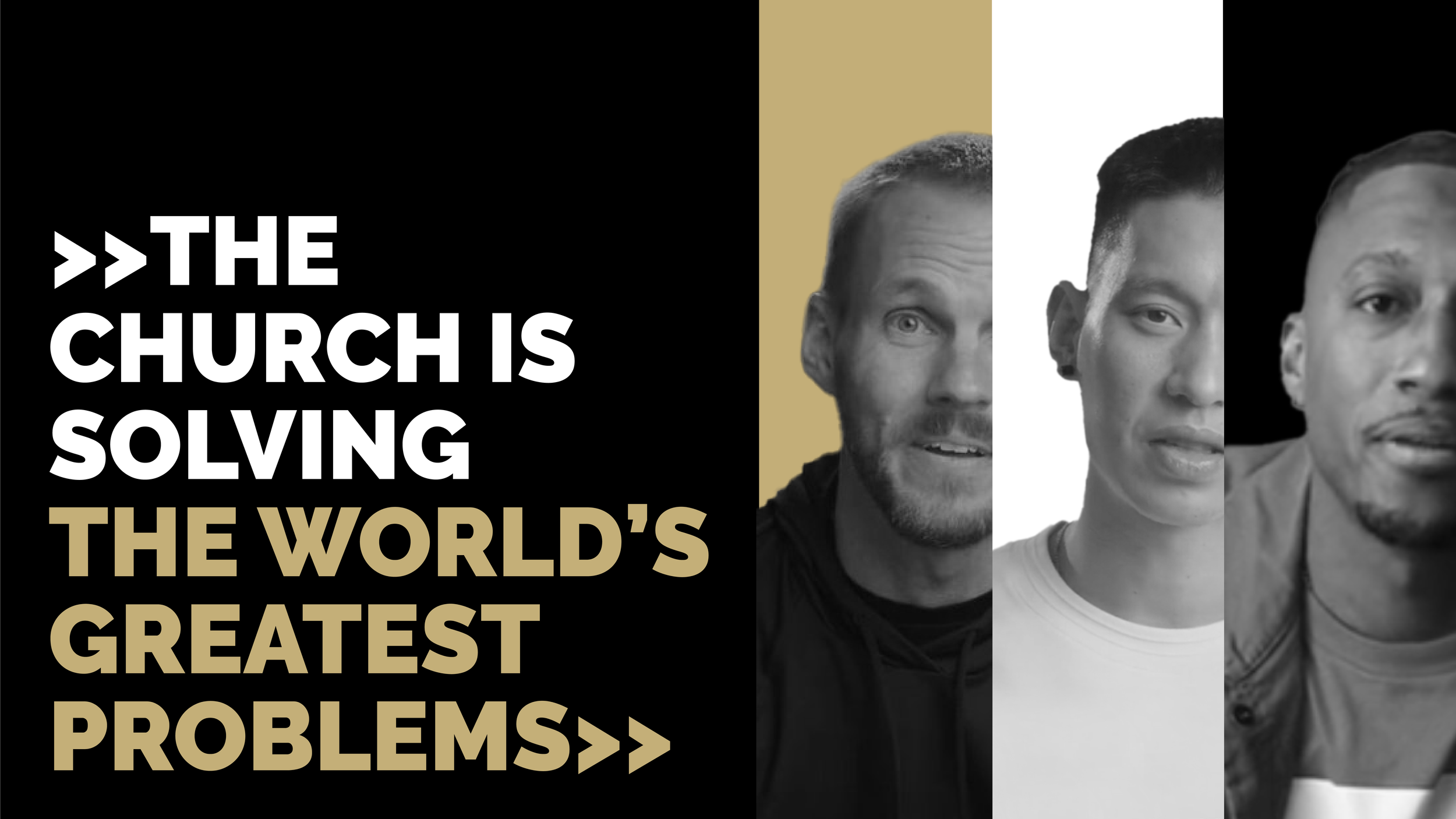
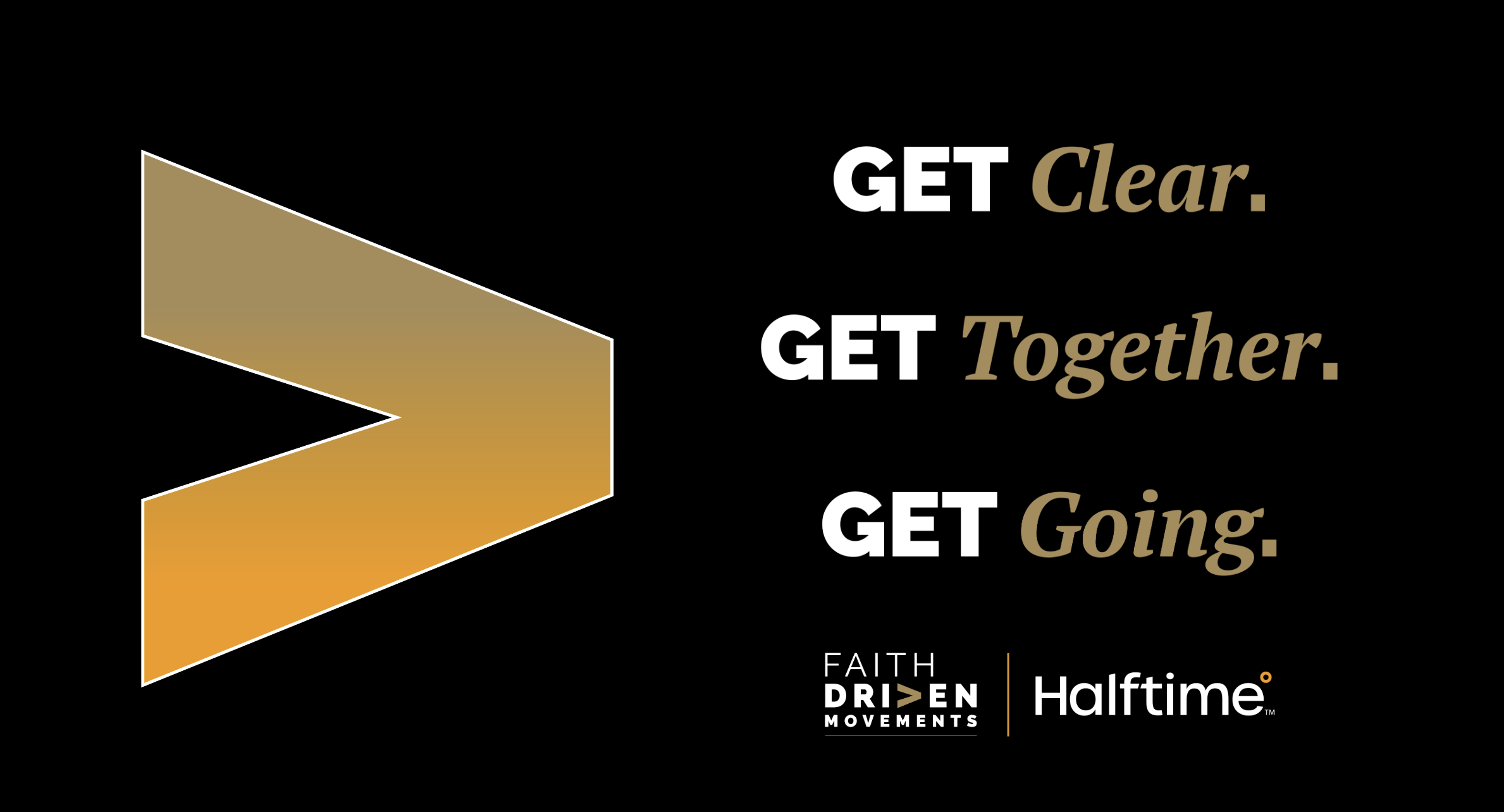
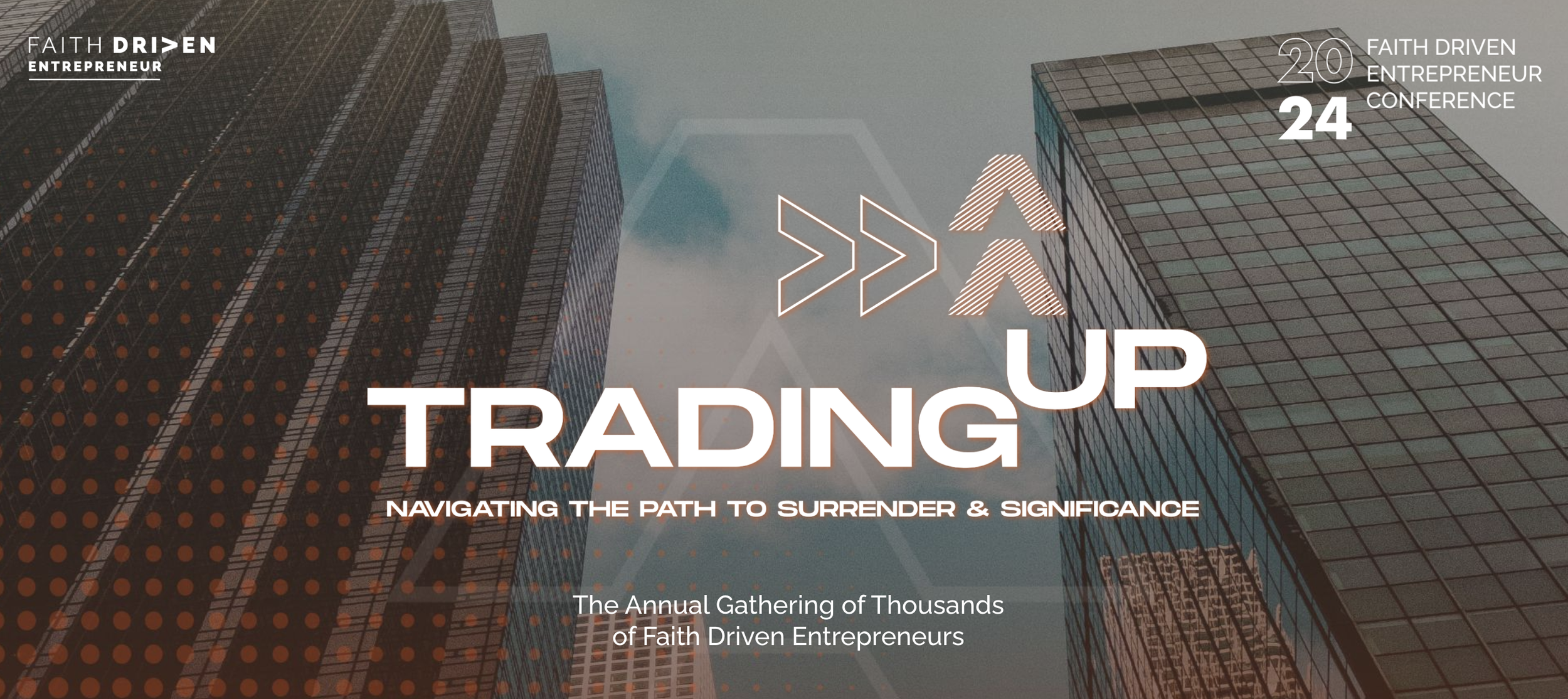
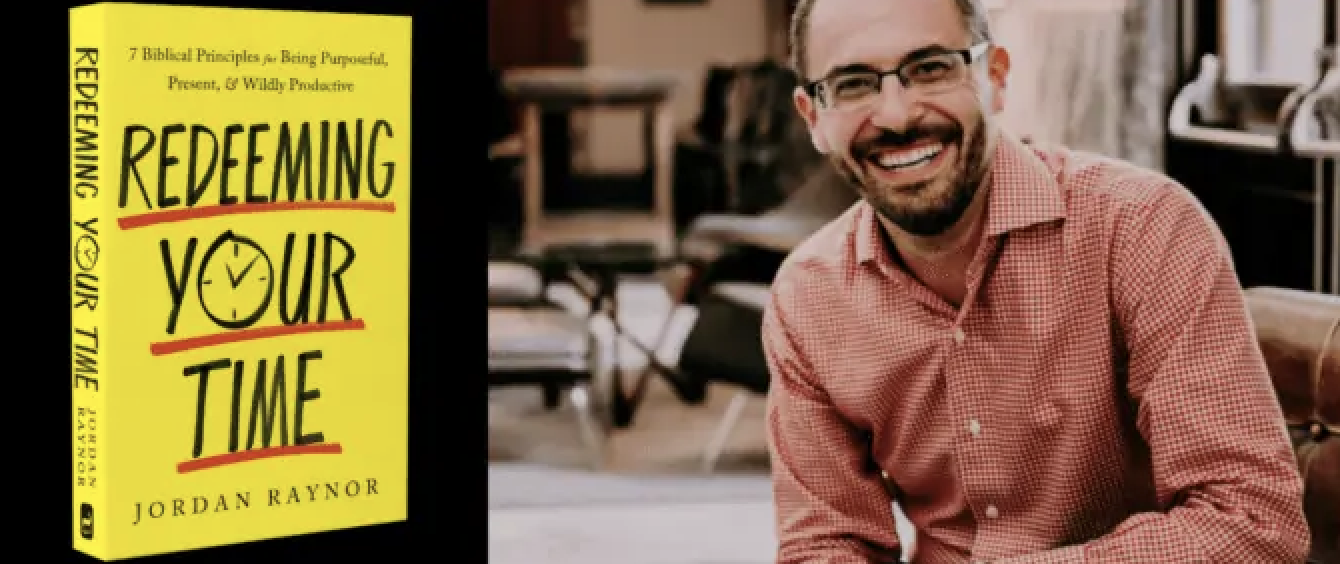
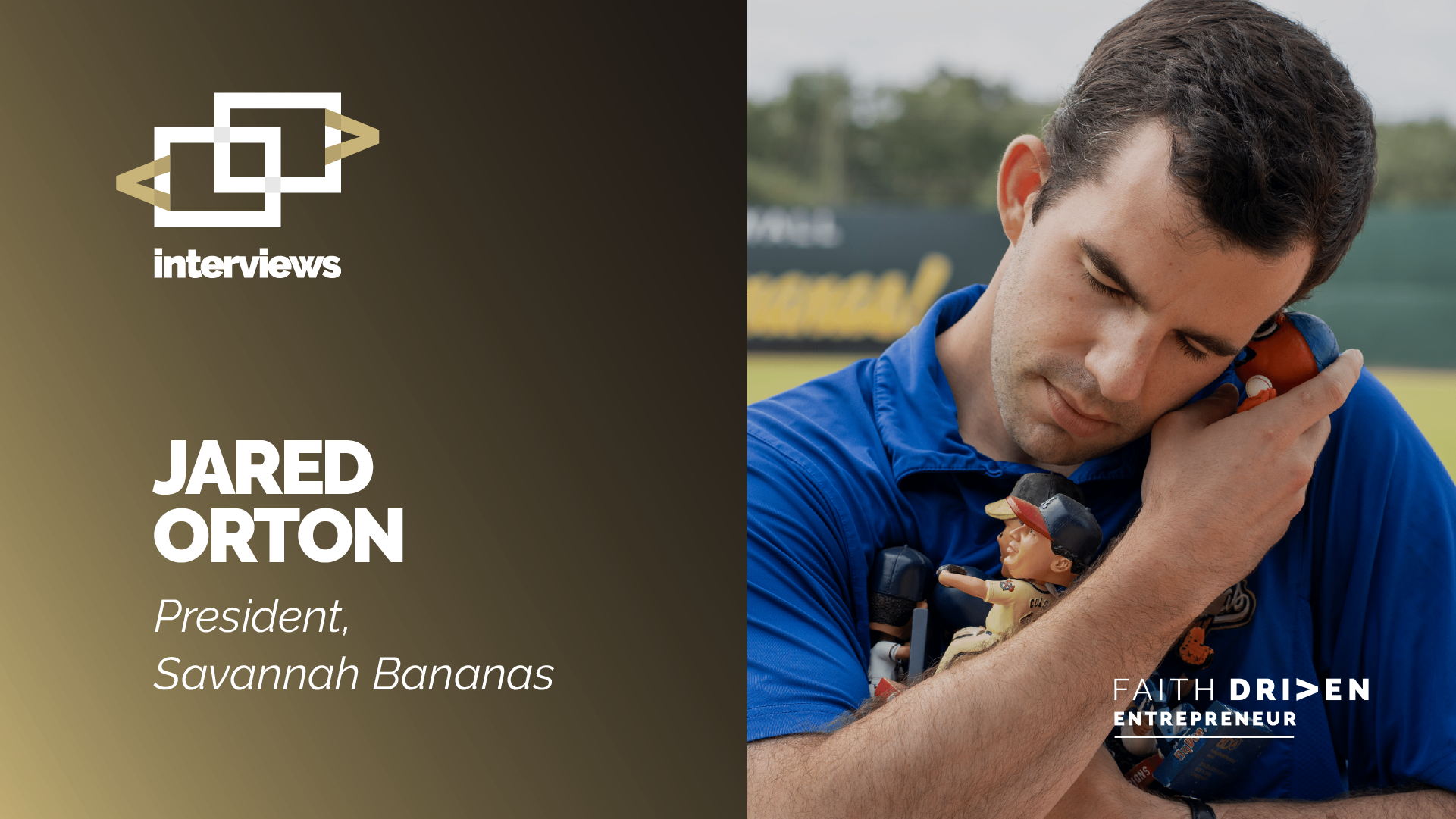
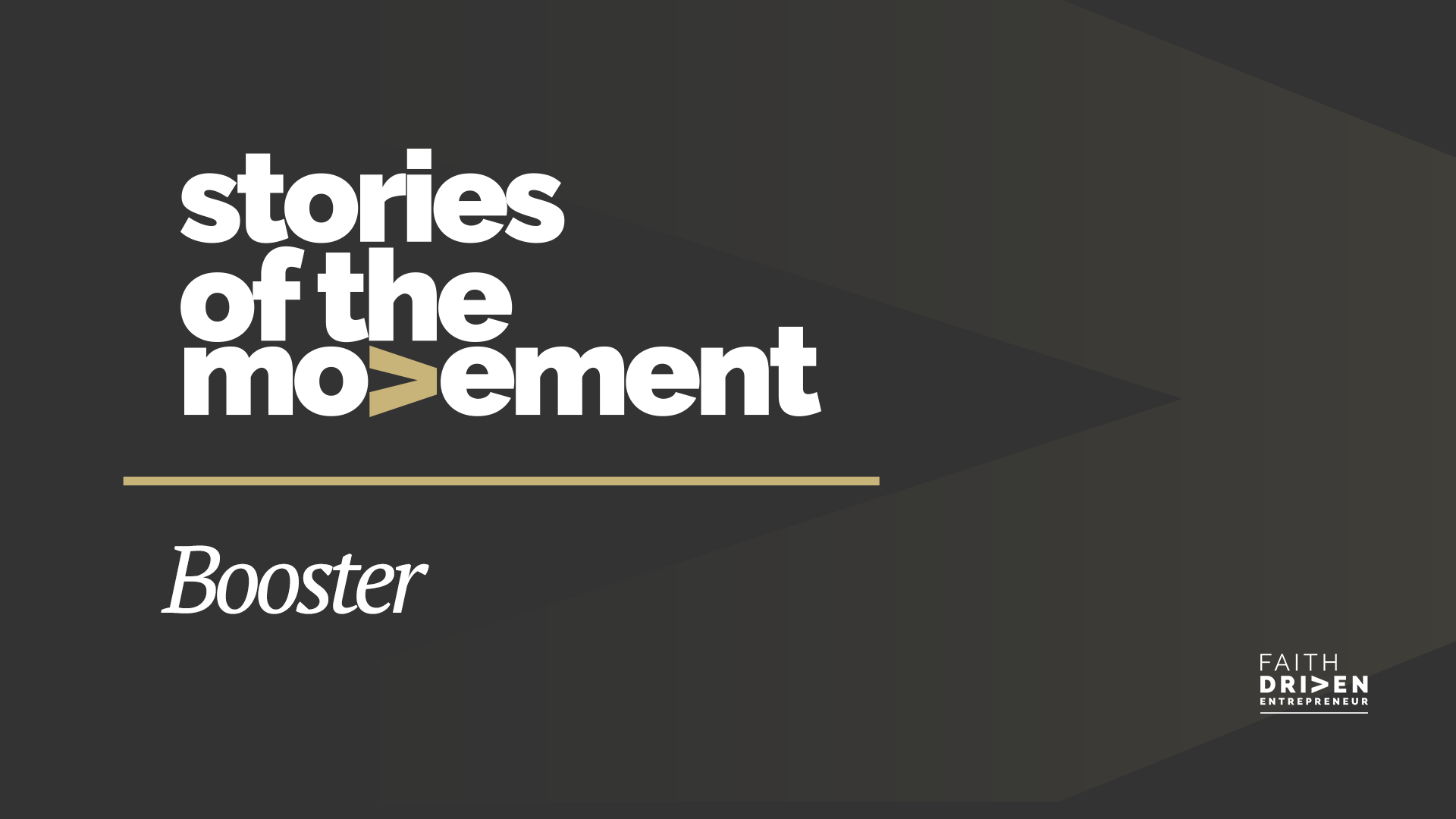
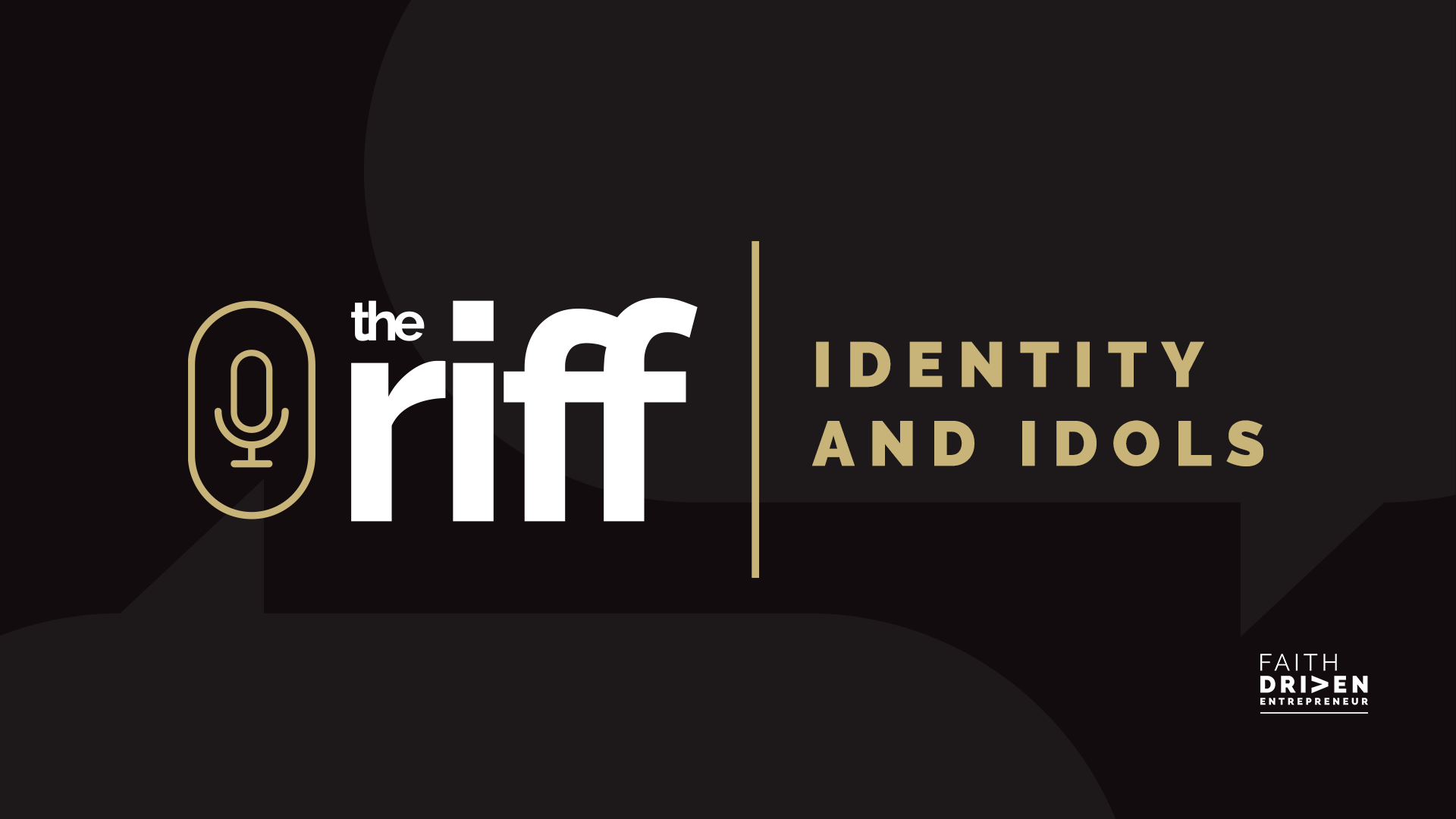


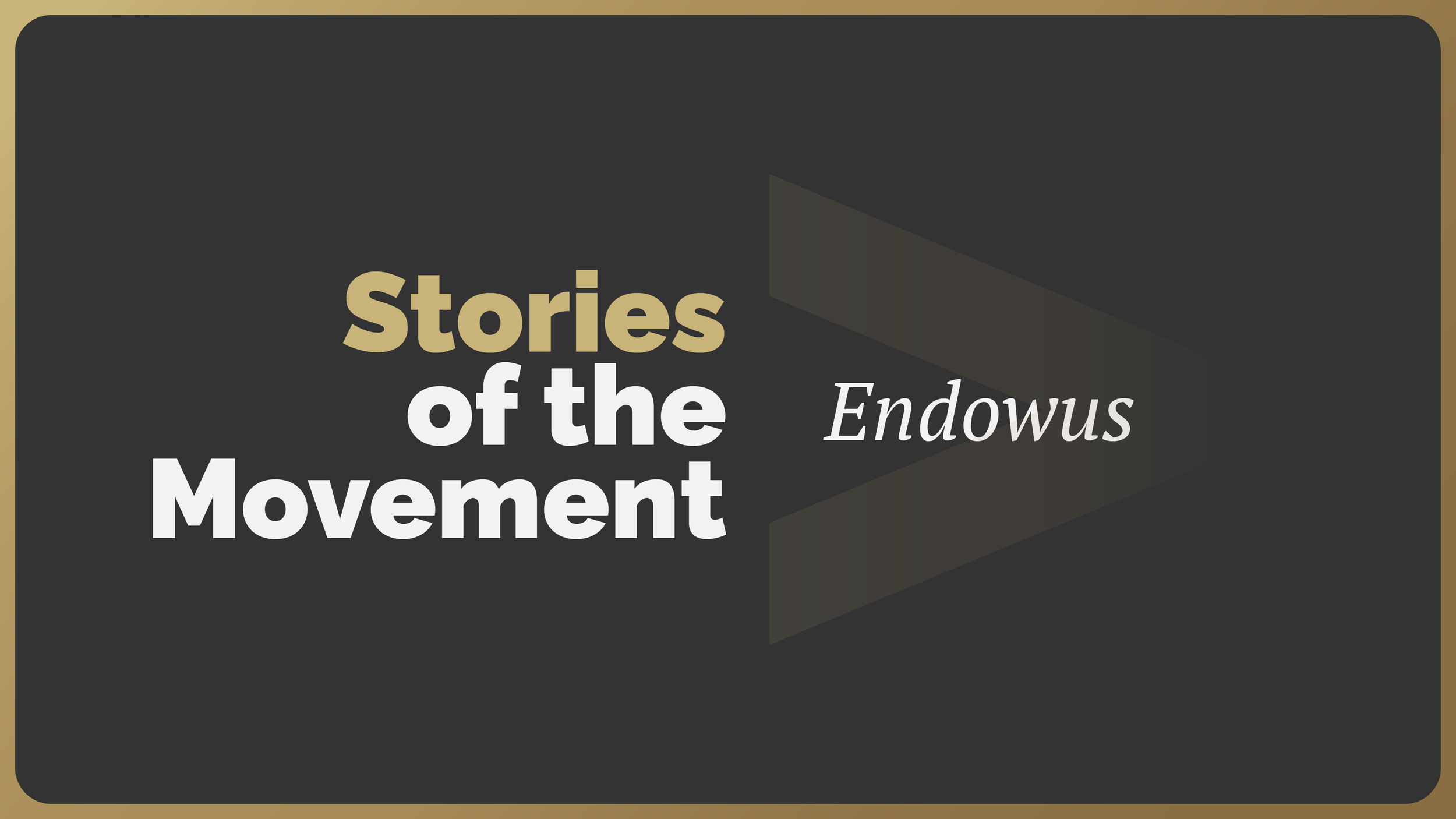
Follow the podcast